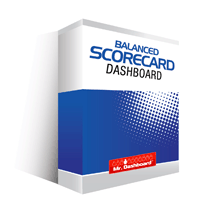
The customer perspective is the bridge between your strategic vision and financial results. In a Balanced Scorecard, it sits right after the financial view and before the internal‑process and learning & growth lenses. When you understand and measure what matters to your customers, you create a clear path to revenue growth and sustainable advantage.
Why the Customer Perspective Is Critical
- Revenue driver: Financial outcomes depend on how well you satisfy and retain customers.
- Process alignment: Your operations and employee capabilities are evaluated through the value they deliver to customers.
- Strategic focus: It forces you to translate vague aspirations into concrete, measurable actions.
Defining Your Core Customer Objective
Start with a single, organization‑wide customer goal that reflects your overall strategy.
- Ask: What do we want customers to think, feel, or do?
- Make it actionable and time‑bound (e.g., “Increase Net Promoter Score by 12 points in 12 months”).
- Validate with sales, support, and product teams to ensure relevance.
Step 1 – Identify the Primary Customer Goal
Examples include:
- Boost brand loyalty
- Accelerate new‑customer acquisition
- Improve on‑time delivery perception
Step 2 – Choose the Right KPIs
Pick metrics that directly measure progress toward the goal. Use a mix of lagging and leading indicators.
- Customer Satisfaction (CSAT) score
- Net Promoter Score (NPS)
- Customer Retention Rate
- Average Resolution Time
- Revenue per Customer
- Market Share in target segment
Key Customer KPIs for Different Business Strategies
| Strategic Focus | Typical Customer Objective | Top KPIs |
|---|---|---|
| Product Innovation (e.g., Apple) | Become the most loved brand for cutting‑edge products | NPS, Product Launch Success Rate, Repeat Purchase Rate, Brand Advocacy Score |
| Operational Excellence (e.g., FedEx) | Deliver every package on time, every time | On‑time Delivery %, Order Accuracy, Customer Complaints per 10,000 shipments |
| Subscription SaaS Model | Maximise customer lifetime value through usage and renewal | Churn Rate, Monthly Active Users, Expansion Revenue, Customer Health Score |
| Retail / E‑commerce | Increase basket size and repeat visits | Average Order Value, Repeat Purchase Rate, Cart Abandonment Rate, Customer Satisfaction Index |
Building the Customer Perspective in Your Scorecard
Follow this simple recipe to embed the customer view into your Balanced Scorecard.
- State the objective: Write a one‑sentence statement that captures the desired customer outcome.
- Select 3‑5 KPIs: Use the lists above to choose the most relevant measures.
- Set targets: Define realistic but ambitious numbers for each KPI (e.g., NPS ≥ 60).
- Link to initiatives: For each KPI, list the projects or processes that will drive improvement (e.g., “Implement live chat support”).
- Review quarterly: Compare actual results vs. targets and adjust tactics.
Need a ready‑made template? Balanced Scorecard and Strategy Map Toolkit provides editable scorecard sheets and guidance for every perspective.
Quick Customer Perspective Checklist
| Checklist Item | Done? |
|---|---|
| Define a single, organization‑wide customer objective | ☐ |
| Choose 3–5 leading and lagging customer KPIs | ☐ |
| Set clear, time‑bound targets for each KPI | ☐ |
| Map each KPI to specific initiatives or process improvements | ☐ |
| Schedule quarterly performance reviews | ☐ |
Next Steps – Turn Insight Into Action
Start building a customer‑focused scorecard today. The Customer Retention & Loyalty Strategy Pack offers ready‑to‑use surveys, loyalty programs, and retention dashboards that plug directly into your Balanced Scorecard.
When your customer perspective is solid, the financial and operational goals fall into place – you’ll see higher revenue, lower churn, and a stronger competitive edge.
Ready to accelerate your strategy? Explore the Balanced Scorecard and Strategy Map Toolkit now.






























